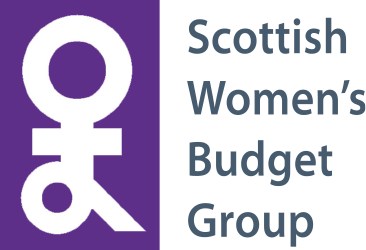SWBG blog
Labour’s second budget, did the Chancellor get it right?
Blog by Sara Cowan, Director, and Carmen Martinez, Policy and Engagement Lead
After weeks of speculation about what measures would feature in her second budget, the Chancellor has finally delivered her Autumn Statement. As always, it is a mixed bag—but this budget does include some measures worth celebrating from a women’s equality perspective.
Let’s start with the most obvious win: an end to the two-child limit. After years of mounting evidence—and thanks to the tireless work of many organisations and individuals, including those under the banner of the End Child Poverty Coalition—the UK is finally seeing the end of this punitive policy. The result? Around 350,000 children will be lifted out of poverty, and a further 700,000 will find themselves in less deep poverty.
In Scotland, the Scottish Government had already committed to mitigating the two-child limit. However, today’s announcement will free up the £155 million that was to be allocated to achieve this commitment. This extra funding should be directed toward other policies aimed at tackling child poverty in line with the government’s priorities, for example increasing the rate of the Scottish Child Payment. Yet with the benefit cap still in place, the Scottish Government will need to continue to cover costs of mitigating its impact.
Another announcement that will have a significant impact on women is the decision to support families with three or more children by increasing the maximum amount of childcare costs they can claim through Universal Credit. Equally important as introducing new measures is ensuring that existing policies work effectively. In this regard, it is reassuring to see a written commitment for the Department for Work and Pensions to reassess overpayments caused by incorrect operational guidance on averaging fluctuating earnings, and to begin reducing, cancelling, or reimbursing debts previously collected from affected carers from 2026.
While the focus on social security is welcome, the UK budget’s biggest omission remains social infrastructure. There was no mention of care infrastructure or support for care services, childcare or social care —provisions that are essential for advancing women’s equality. This is an area we will hope to hear a lot more about in the Scottish Budget, particularly regarding critical investment in social care services that could support the delivery of the Scottish Government’s commitment to ending non-residential social care charges.
Another highlight of the budget was the increase in the minimum wage and the move to equalise earnings for younger workers. For women, who are more likely to be on lower wages, including many childcare workers, this increase is particularly significant. However, we continue to call for payment of at least the real living wage to all those working in the care sector, with higher wages for frontline roles in social care and childcare, to recognise the skilled nature of the work.
Pivoting to announcements that support a Just Transition, it’s encouraging to see that the government will introduce energy relief, saving households £150 on electricity bills. A closer look at the budget papers reveals that “energy costs will be reduced by the ending of the Energy Company Obligation, which is currently funded through bills, and through the government funding 75% of the domestic cost of the legacy Renewables Obligation for three years.”
This focus on alleviating the cost of living is important. After all, energy costs are the second-highest single expense making women worse off, according to our annual women’s survey. Yet the Energy Company Obligation was a scheme requiring large energy companies to help low-income and vulnerable households heat their homes via energy efficiency improvements or heating system upgrades. Its removal could represent a step backwards in decarbonising our homes, delivering a Just Transition, reducing bills in the long-term and effectively tackling climate change. A further review of the budget papers will hopefully clarify where support for a Just Transition will come from and what this might mean for Scotland.
Finally, a lot has been said about taxes. What’s been presented in the budget is a missed opportunity for fundamental improvement to our tax system. While small steps were taken for what the Chancellor said would be the wealthiest contributing the most this fell short of significant change such as fully matching taxing income from work and from wealth or consideration of a broader wealth tax.
It was also encouraging to see changes to both the higher rate of Air Passenger Duty (APD) - known as a Private Jet Tax - and the Soft Drinks Industry Levy. While APD does not directly apply to Scotland, as it is a devolved tax, the Scottish Government could follow suit to support its efforts in tackling the climate emergency. As for the Soft Drinks Industry Levy, much attention has been paid to milkshakes. However, growing evidence links sugar and ultra-processed foods to worsening health outcomes. From a financial perspective, it is fair to say that the NHS cannot continue shouldering the costs of market failures.
So, to return to our initial question: the Chancellor’s overdue changes to the social security system are very much welcome. Yet a key takeaway from this budget has to do with the absence of investment in social infrastructure, particularly in care. We need far bolder action to improve our public services—even if that means breaking manifesto promises.
Mailing list
To join our email list, simply enter your email address below.
